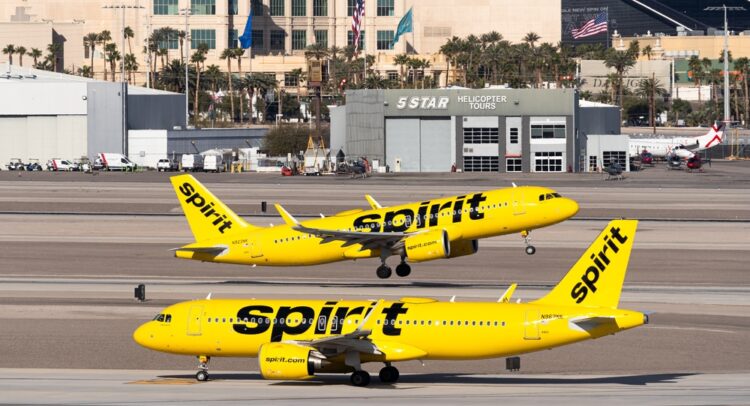Spirit Airlines (SAVE) announced on Monday that it has filed for bankruptcy protection. The low-budget airline stated that it has entered into a restructuring support agreement (RSA) supported by the airline’s loyalty and convertible bondholders that will include a comprehensive restructuring of its balance sheet.
Spirit’s RSA Includes $350M Equity Investment
The agreement includes a $350 million equity investment from existing bondholders and reducing its debt by converting its $795 million of funded debt to equity. Additionally, these bondholders have committed $300 million in debtor-in-possession (DIP) financing. DIP financing is a type of financing that allows companies who have filed for bankruptcy protection to continue to operate, reorganize, and pay off their debts.
Combined with Spirit’s available cash reserves, this funding is expected to support the airline’s operations and restructuring efforts throughout the bankruptcy process.
In addition, Spirit stated that flight operations will continue as normal during the proceedings, and bookings will not be affected. However, the airline anticipates being delisted from the New York Stock Exchange in the near term.
The airline’s shares, which have already plummeted by more than 90% this year, were halted for trading on Monday following the bankruptcy announcement. Furthermore, the company expects to emerge from Chapter 11 protection by the first quarter of 2025, stronger and more financially flexible.
SAVE’s Troubles Have Increased Over the Years
SAVE has faced mounting financial struggles despite a surge in travel demand. Higher operating costs, fueled by rising labor expenses and increased aircraft maintenance, have reduced its profitability, leaving the airline in a precarious position.
Furthermore, the collapse of Spirit’s $3.8 billion merger with JetBlue Airways (JBLU) earlier this year deepened its troubles. Earlier this year, a U.S. judge blocked the deal, ruling that it would harm consumers by reducing competition. This marked a significant blow to Spirit, which had pinned hopes on the merger to stabilize its finances. Compounding its challenges, RTX’s (RTX) Pratt & Whitney Geared Turbofan (GTF) engine issues grounded many of Spirit’s planes, further straining its operations.
Is SAVE Stock a Buy or Sell?
Analysts remain bearish about SAVE stock, with a Strong Sell consensus rating based on one Hold, and four Sells. The average SAVE price target of $2.13 implies an upside potential of 97.2% from current levels.

















